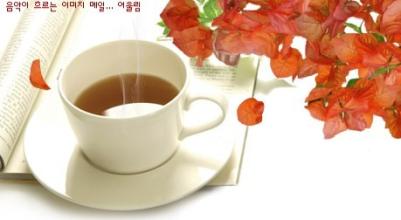Coffee beans are light green and turn brown when roasted. The characteristic brown of this kind of baking mainly comes from
A good cup of hand-brewed coffee can taste different levels of details such as sour, fragrant and sweet. It is refreshing and burden-free. As long as you touch it, you can't extricate yourself from such meticulous flavor changes. And hand drip filter coffee has always played an indispensable role in single coffee, most of the products of single coffee are mainly hand drip filtration. First of all, the hand dripping filter coffee is very convenient to clean; secondly, the taste of the hand drip filter is cleaner, and the overall flavor is easier to express; finally, the variable that can be adjusted by the hand drip filter coffee is easier to control. For a long time, several variables affecting hand-brewed coffee are divided into: 1, coffee beans; 2, scale; 3, water temperature; 4, the material and shape of the filter cup; 5, steaming time; 6, the ratio of water to powder; 7, the control of barista.
The first factor-coffee beans
For many baristas, coffee beans are an unchangeable factor, because many baristas work hard to make coffee in an environment surrounded by commercial beans, so they can't make very good coffee no matter how hard they try. As the old saying goes, "A clever housewife cannot make bricks without rice" is a description of such baristas. As long as the quality of beans is improved, they all belong to the scope of technical control, so coffee beans have nothing to say. You may not make good coffee with good beans, but you can't make good coffee with bad beans. At the same time, we also talk about some mistakes in making hand-made coffee.
Grinding degree
There are all kinds of bean grinders on the market, and a good bean grinder can ensure that the coffee powder is evenly ground. If the coffee powder is uneven and the fine powder is too much, it will make the coffee taste not "pure". What is the suitable thickness of hand-brewed coffee beans? The answer is: moderate grinding, the size of granulated sugar. If the coffee powder is too thick and the hot water flows too fast, it is difficult to extract the aromatic substances from the coffee. If the coffee powder is too fine, the filter is easy to clog, resulting in water and powder soaking time is too long, coffee will appear bitter, astringent taste.
Freshness
Many people choose ground coffee powder for convenience, or grind a lot at one time and put it in the refrigerator. In fact, "fresh grinding" is the first condition of good coffee, it ensures the taste of coffee. When the coffee is ground into powder, the oxidation rate of the coffee powder is accelerated, and the aroma begins to lose in 40 seconds. If the aroma of coffee powder is seriously lost, the flavor of natural coffee will disappear.
Cloth powder
After pouring the coffee powder into the drip filter cup, gently shake it to make it flat, this is a very easy to ignore step, or too hard, shake too many times, it is not advisable. The smoothness of the flour determines the uniformity of stewing and extraction of hand-made coffee, which directly leads to the taste of the coffee.
The second factor-scale
That's what we call a bean grinder. Under the same beans, a good bean grinder is the most important link that affects the flavor, and a suitable scale is the most important factor to express the flavor of coffee. Therefore, if you want to express what kind of flavor, you should use the corresponding scale, hand-dripping coffee generally use medium-thick particles (such as gravel or thicker). Many novice friends often walk into a misunderstanding that coffee should be ground as finely as possible, but the result is just the opposite. the control of fineness is the most important factor for a coffee to express the correct flavor. Of course, before you adjust the scale, you first need to understand the beans you use. if the beans you use are medium-and deep-baked, such as Mantenin, then your fine scale may bring more intense aroma and mellow thickness, but it will also bring bitterness and astringency, and if you thicken it, it may bring some grass aroma. But Manning, which loses most of its alcohol thickness, is actually incomplete, so you have to adjust the scale over and over again to the taste you are satisfied with. And if you use medium-to-shallow baked beans, such as Yega Xuefei, then the use of too fine scale may produce strong acid, and the astringency is very serious, which can easily lead to excessive extraction, especially when you take longer extraction time, and if you use too coarse scale, it may bring bright acidity, but the aroma and sweetness of Yega Xuefei will also be much lighter. So how important is the proper scale for a coffee bean? the scale required for the best flavor expression of each kind of coffee is different, because the bean grinder is very different, including the same type of bean grinder, so the scale must be adjusted by its own taste buds. After all, whether it tastes good or not is very subjective.
The third factor-water
Water quality
If you care about taste, don't ignore the water used to make coffee. 98% of a cup of hand-brewed coffee is water, and the range of soluble matter (TDS) in water is preferably between 100 and 250ppm. It is not recommended to use pure water to make coffee. Coffee made with pure water often tastes dull and lacks a sense of hierarchy. But do not use mixed brand mineral water or mixed brand barreled water, once there is a strange smell in the water, it will be more obviously magnified and reflected in the coffee. (you can choose mineral water from famous brands such as Xafu.)
Water temperature
Water temperature is also an important indicator that affects the taste of coffee. Too high water temperature will make coffee bitter, while low water temperature will make coffee sour. Suggestion: deep roasted coffee beans are suitable for 80-85 degrees, while medium and shallow roasted coffee beans are suitable for extraction at about 90 degrees.
Water flow
Whether the aroma and hierarchy of coffee can be released heartily, the key lies in water injection. Common mistakes are:
a. The injected water column is too large and the direction of the water column is too tilted, which will cause the water to flush a hole in the side of the powder layer and run away directly from the filter paper, resulting in insufficient coffee extraction.
b. The water column is pulled too high, resulting in the flow of water to destroy the coffee powder, easy to inject bubbles, and uneven coffee extraction. It will also lead to too much water column and contact air area, and the water temperature will be affected, so the water column must be as close to the coffee as possible.
c. The water flow is unstable, sometimes large and small, sometimes dashing, sometimes ticking off, resulting in different degrees of soaking in different areas of coffee powder, and the taste of coffee will be affected.
Water quantity
As different people have different tastes, different requirements for shade are different. The concentration range of gold cup extraction is 1.15% Mo 1.35%, and the proportion of water used is about 1:13 to 15. Some people use very little water simply in pursuit of richness, but it doesn't taste good. On the contrary, some people expect to extract more substances with more water, but they do not realize that the later the extraction is, the lighter it is, and the final concentration is not enough.

Important Notice :
前街咖啡 FrontStreet Coffee has moved to new addredd:
FrontStreet Coffee Address: 315,Donghua East Road,GuangZhou
Tel:020 38364473
- Prev

Why do coffee beans turn brown after roasting? Why is there an aroma?
Coffee beans are light green and turn brown when roasted. This baking characteristic brown mainly comes from the brown pigment produced by oligosaccharins, amino acids and chlorogenic acids. The so-called brown pigment does not refer to a color or ingredient, but a general term for the many ingredients that make coffee different colors. Raw beans gradually change color during baking because of the total amount of brown pigment
- Next

Every good cup of coffee is respected-- an intellectual.
In October 1995, Doug Zell and Emily Mange left San Francisco and traveled across North America to Chicago (it was a huge trip) and settled on Broadway north of Chicago, starting a coffee roasting retail store. At first, they simply hoped that they could use a charming but may need to be capricious in their own coffee bar.
Related
- Beginners will see the "Coffee pull flower" guide!
- What is the difference between ice blog purified milk and ordinary milk coffee?
- Why is the Philippines the largest producer of crops in Liberia?
- For coffee extraction, should the fine powder be retained?
- How does extracted espresso fill pressed powder? How much strength does it take to press the powder?
- How to make jasmine cold extract coffee? Is the jasmine + latte good?
- Will this little toy really make the coffee taste better? How does Lily Drip affect coffee extraction?
- Will the action of slapping the filter cup also affect coffee extraction?
- What's the difference between powder-to-water ratio and powder-to-liquid ratio?
- What is the Ethiopian local species? What does it have to do with Heirloom native species?

